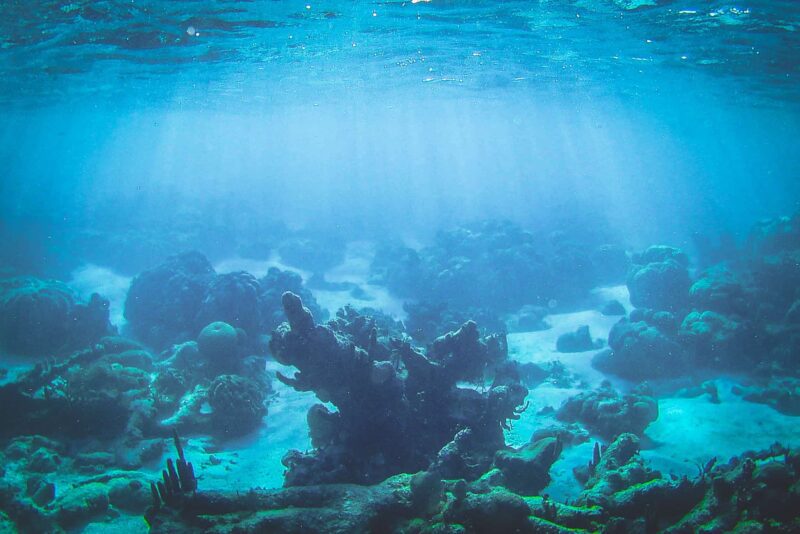Internews’ Earth Journalism Network has launched the Mesoamerican Reef Reporting Project to increase and improve news coverage on the environmental health of a vital reef system that stretches across the coasts of Mexico, Belize, Guatemala and Honduras. The project, which is supported by the Summit Foundation, will help journalists prepare to report on the findings of the Mesoamerican Reef Report Card, a tool put out annually by the Healthy Reefs initiative, whose partners include Summit.
One of the longest barrier reefs in the world, the Mesoamerican Reef is a haven for biodiversity, home to hundreds of fish species, turtles, sharks and myriad types of coral. It also supports the economies of many coastal communities in these four countries. But it’s increasingly under threat from pollution, overfishing, unregulated development and tourism, coral bleaching due to rising ocean temperatures and now a new disease that is attacking coral tissue.
Drawing attention to these issues and raising awareness about the importance of the reef for coastal protection, tourism, food security and biodiversity are among the aims of this new project.
Over the next nine months, the reef reporting project will work to build the capacity of reporters in the region to report on these issues and enhance their knowledge of the challenges facing the reef and ways to protect and conserve its health.
This network will then give local journalists the opportunity to investigate, produce, and disseminate accurate, reliable and trusted information about the effects of climate change and environmental degradation on the reef system through the distribution of story grants. It will also provide strategies for sustainable management of reef health by raising awareness and driving discussions among local, national and regional decision-makers.
What’s next
Project coordinators and regional partners are currently organizing a workshop that will bring together journalists from Mexico, Guatemala and Honduras to learn about local stressors on the reef system. The workshop will be held in late June in Mexico’s Yucatan peninsula in partnership with Red Mexicana de Periodistas Ambientales (REMPA). A second workshop in Belize solely for local journalists will be held in the middle of August.
In addition to these workshops, EJN will host webinars on September 5th in Spanish and English following the launch of the 2019 Reef Report Card. These online briefings will be open to reporters across the region, giving them the chance to hear the latest on the state of the reef’s health and discuss its regional and global significance.
Following the workshops, EJN will provide story grants to local journalists to write news stories and in-depth investigations aimed at raising awareness among the public and policymakers about the effects of coastal development, environmental degradation and other impacts on the reef system and expanding upon the recommendations put forward by the Reef Report Card. The first announcement about how to apply for story grants is expected to be made in early July.
(Banner photo: An underwater shot of the Mesoamerican Reef off the coast of Belize. Credit: Viv Lynch via Flickr.com)
